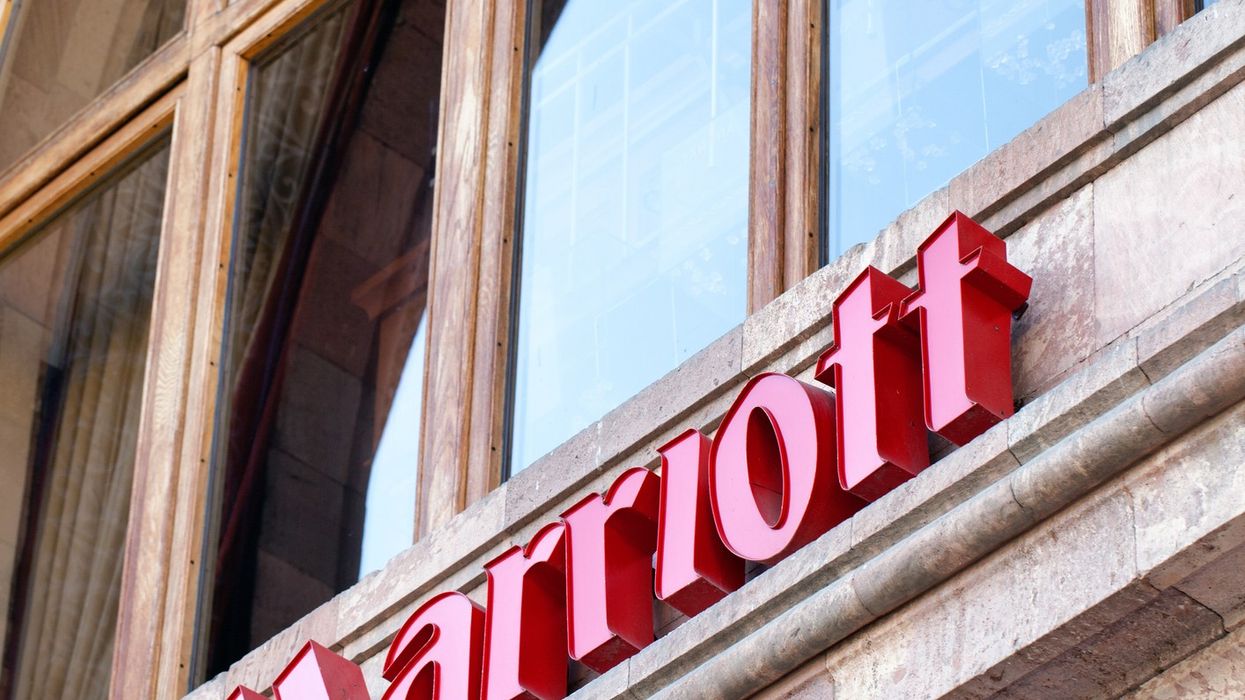A LETTER APPEARING to be from Marriott International stating that the company was “re-evaluating” its official relationship with AAHOA over the association’s new stance on franchise relations is causing some disruption on social media. Marriott and AAHOA have not responded to repeated requests for comment on the letter, but in an email to members AAHOA Chairman Neal Patel said the letter is a draft and the company and association are still in negotiations.
The letter specifically cites AAHOA’s request that the company reassess its franchising policies in light of AAHOA’s recently released “12 Points of Fair Franchising.” Also, it mentions AAHOA’s support for New Jersey’s proposed Assembly Bill 1958 that would make changes to the New Jersey Franchise Practices Act similar to the guidelines laid out in the 12 Points.
“Ultimately, Marriott cannot support, either by endorsement and/or financially, any organization that is in direct opposition to our business model and interests,” Marriott said in the letter. “We believe quite strongly that the longstanding relationship between Marriott and AAHOA has proven to be mutually beneficial, and we are deeply saddened that AAHOA has chosen to pivot its stance on these key issues in a way that is decidedly anti-franchising and anti-Marriott (especially since, as the AAHOA leadership shared with us in a recent meeting, neither AAHOA’s leaders nor its members have any material issues with Marriott’s approach to franchising or to our franchisees).”
In his letter to members, however, Neal Patel said the letter is just a draft and the association is still awaiting official word from Marriott.
“The tone and content of the draft letter are very serious and explicitly state where Marriott stands in relation to AAHOA and fair franchising. AAHOA leadership has been in communication with Marriott over the past several weeks, and we are surprised and saddened that this draft letter was released in a public forum,” Patel said. “Please rest assured that we are doing everything we can to address these issues directly with Marriott leadership, but not at the expense of our members. AAHOA has stood, and will continue to stand, for fairness in franchising, especially involving the education of our members. That is one of our core values.”
In the letter, Marriott said it still plans to do business with AAHOA members and would “welcome the opportunity to restore our relationship if AAHOA’s positions on its legislative advocacy and other ‘fair franchising’ issues change.” Patel said AAHOA also is working toward an amicable solution.
“We will remain committed to open communication and dialogue as our efforts continue to unfold and progress over the next several weeks, and we welcome continued discussions with our brand partners to strengthen our partnership and achieve mutually beneficial goals,” he said.
Implementing the 12 Points was a key point of discussion by Patel and candidates for AAHOA’s secretary position during the association’s 2022 Convention & Trade Show in Baltimore, Maryland, in April.
The 12 Points of Fair Franchising are:
Termination rights and liquidated damages: A best-practice approach to voluntary buyout or involuntary termination, liquidated damages, windows provisions, early termination, and franchisee termination rights.
Impact, encroachment, and cross-brand protection: How to establish a fair and reasonable formula to protect a franchisee’s assets.
- Minimum performance and quality guarantees: Minimum brand performance and quality guarantees from franchisors related to public image and reputation.
- Quality assurance inspections and guest surveys: Ensuring consistent, unbiased, and reasonable standards for quality assurance inspections and accuracy of QA reports.
- Vendor exclusivity rebates, and affiliated companies as vendors: This can ensure competitive pricing.
- Full transparency of franchisee-funded programs and fees: The disclosure and accountability for the expenditure of marketing, loyalty, and reservation fees.
- Maintaining and building relationships: Establishing fruitful, long-term business relationships through recognition of value and effective communication.
- Dispute resolution: Creating a commitment to establish an independent and fair process for the resolution of disputes related to agreements or relationships.
- Venue and choice-of-law clauses: Any party pursuing claims in a court of law should do so in the county and state in which the subject facility is located.
- Franchise sales ethics and practices, proper disclosures: The mandate of fair and honest selling practices among franchiser salespersons and agents.
- Transferability: When it comes to transferability, parties should not delay or act unreasonably.
- Sale of the franchise system hotels brand(s): Giving notice of a sale to existing franchisees and pledging to a smooth transition between existing and new franchiser owners.
Regarding New Jersey’s Assembly Bill 1958, the changes it would make include restricting non-competes for longer than six months; prohibiting requiring a relocation or capital investment greater than $25,000 more than once every five years unless hotel franchisers can establish a return on the investment; requiring a franchiser that receives “any rebate, commission, kickback, services, other consideration or anything of value” to fully disclose them to the franchisee and turn them over to the franchisee; putting restrictions on mandatory sourcing of goods or resources; and prohibiting suspending, restricting or preventing access to franchise services.






